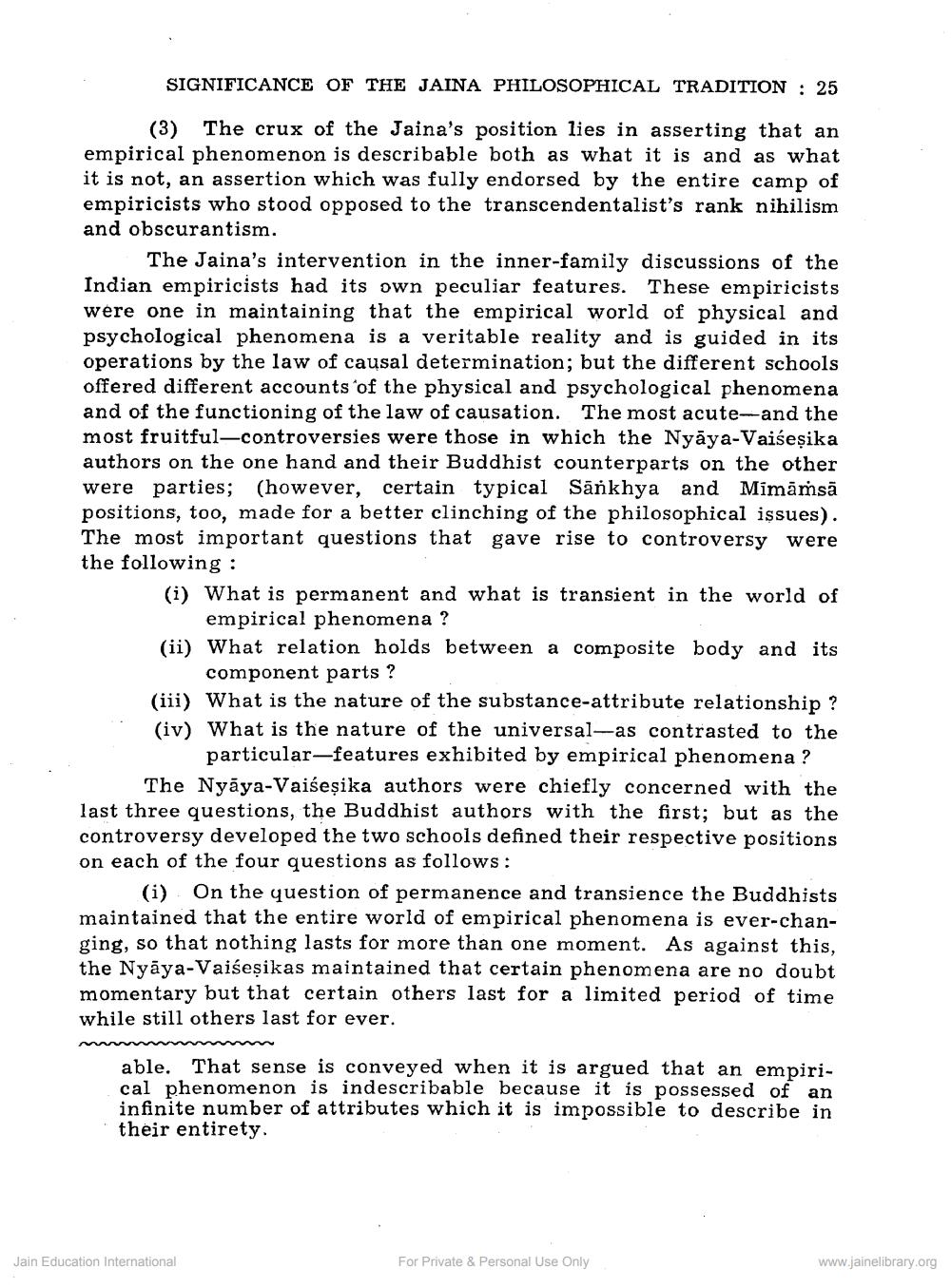Book Title: Logical and Historical Significance of Jaina Philosophical Tradition Author(s): K K Dixit Publisher: Z_Mahavir_Jain_Vidyalay_Suvarna_Mahotsav_Granth_Part_1_012002.pdf and Mahavir_Jain_Vidyalay_Suvarna_ View full book textPage 5
________________ SIGNIFICANCE OF THE JAINA PHILOSOPHICAL TRADITION : 25 (3) The crux of the Jaina's position lies in asserting that an empirical phenomenon is describable both as what it is and as what it is not, an assertion which was fully endorsed by the entire camp of empiricists who stood opposed to the transcendentalist's rank nihilism and obscurantism. The Jaina's intervention in the inner-family discussions of the Indian empiricists had its own peculiar features. These empiricists were one in maintaining that the empirical world of physical and psychological phenomena is a veritable reality and is guided in its operations by the law of causal determination; but the different schools offered different accounts of the physical and psychological phenomena and of the functioning of the law of causation. The most acute-and the most fruitful-controversies were those in which the Nyāya-Vaiseșika authors on the one hand and their Buddhist counterparts on the other were parties; (however, certain typical Sānkhya and Mimāṁsā positions, too, made for a better clinching of the philosophical issues). The most important questions that gave rise to controversy were the following: (i) What is permanent and what is transient in the world of empirical phenomena ? (ii) What relation holds between a composite body and its component parts ? (iii) What is the nature of the substance-attribute relationship? (iv) What is the nature of the universal-as contrasted to the particular-features exhibited by empirical phenomena? The Nyāya-Vaišesika authors were chiefly concerned with the last three questions, the Buddhist authors with the first; but as the controversy developed the two schools defined their respective positions on each of the four questions as follows: (i) On the question of permanence and transience the Buddhists maintained that the entire world of empirical phenomena is ever-changing, so that nothing lasts for more than one moment. As against this, the Nyāya-Vaiseșikas maintained that certain phenomena are no doubt momentary but that certain others last for a limited period of time while still others last for ever. able. That sense is conveyed when it is argued that an empirical phenomenon is indescribable because it is possessed of an infinite number of attributes which it is impossible to describe in their entirety. Jain Education International For Private & Personal Use Only www.jainelibrary.orgPage Navigation
1 ... 3 4 5 6 7 8 9
